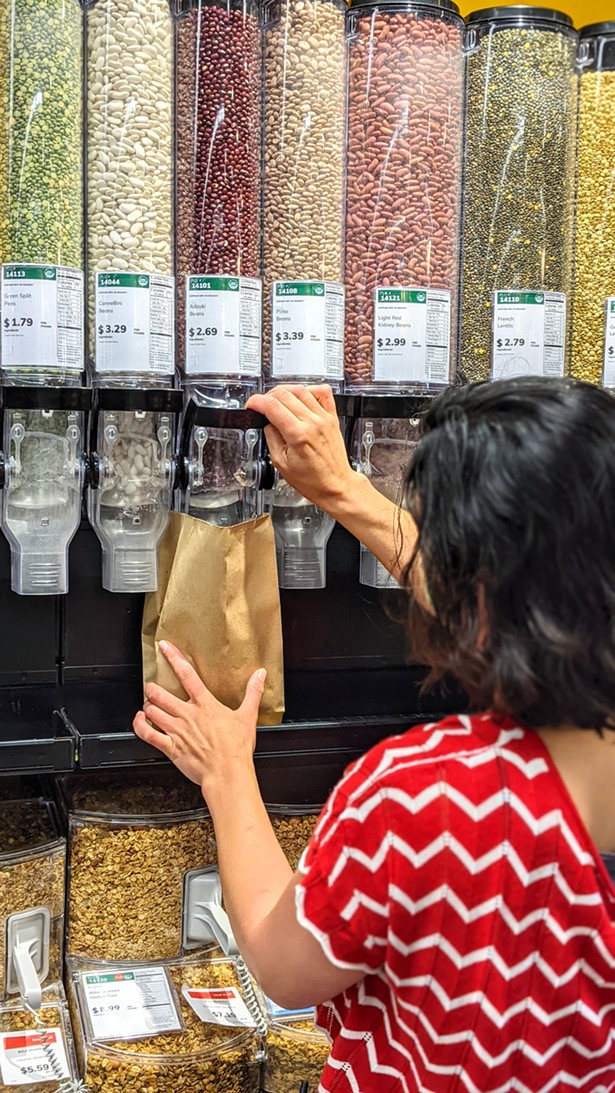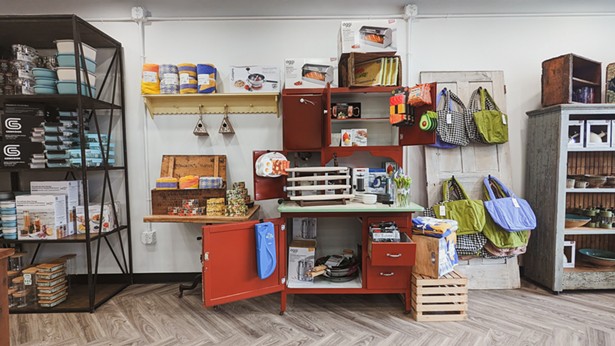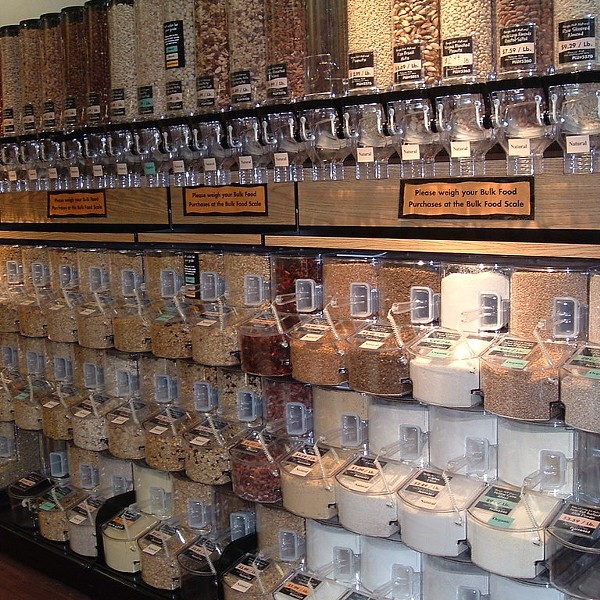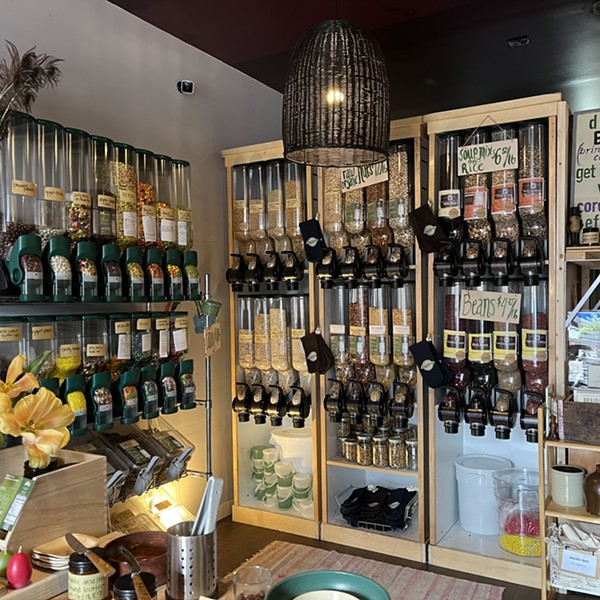Since its introduction in the mid-1800s, plastic has become ubiquitous in everyday life, with everything from soap to peanut butter packaged for easy transport and consumption. In recent years, however, increasing concern for plastic’s environmental impacts and low-recyclability has led many people to start making meaningful efforts to reduce their trash output.
At Berkshire Food Co-op in Great Barrington, a member-owned cooperative that has been bringing sustainable groceries at an affordable price to the Berkshires community since 1981, a newly formed, owner-led Plastic Reduction Committee is taking the lead on guiding shoppers to lower-waste alternatives to plastic.
According to Jennifer Clark, one of the committee’s six members, 42 percent of plastic is intended for single use—destined from its creation for the landfill—and only five to six percent of consumer plastic actually gets recycled.
A major goal of the committee is encouraging shoppers to make reusable containers a part of their day-to-day, be it when shopping for groceries or eating at a restaurant. “It’s a big shift, but we’ve made that shift with reusable bags already,” Clark says.
Offering a variety of foods in bulk is a major way that the Co-op helps facilitate the BYO philosophy. Its bulk offerings include coffee, rice, beans, oats, spices & herbs, and even peanut butter. To help incentivize shoppers to make the switch, they’ll now save five percent on anything they purchase from the bulk department, hot bar, salad bar, and coffee at the cafe when they bring their own clean, non-disposable container to fill.
At the Attic, the Co-op’s new sustainable kitchen and home goods store on the floor above the main store, shoppers can find an array of stainless steel containers or reusable options to kick-start their reusable container collection.
While the committee is focused on consumer education, its ultimate, independent goal is legislation at the town level, with state and federal legislative action not far behind. “We need to support changes that people have to make to their shopping habits,” Clark says. “Really, it’s all about avoiding all products sold in plastic.”
Looking for more ways to reduce plastic use? Here are a few handy tips from the Co-op’s Plastic Reduction Committee:
Say no to plastic film bags for produce. “If you’re buying a large vegetable like an eggplant you don’t need to shroud it in plastic,” Clark says. “And if you’re buying something small, like mushrooms, you can bring a cloth bag.” Reusable produce and shopping bags can be found in both the Attic and the Co-op.
Avoid buying pre-cut veggies wrapped in plastic. Whole vegetables are often less expensive by the pound than pre-cut offerings, which saves money and reduces plastic.
Opt for prepared food items like rotisserie chicken or pasta salad that come in paper or compostable packaging as opposed to plastic clam shells. The Co-op is currently researching non-plastic alternatives for its grab-and-go items and will be phasing out plastic clamshells as part of that process.
Be careful about the use of paper coffee cups, Clark says: “Sometimes, they have plastics within the lining. Look for plant-based plastics whenever you can.”
If a product is available in either plastic or glass jars, choose glass—its recycling rate is higher than that of plastic.
Explore the wide world of alternative packaging and low-waste product design! Ditch plastic detergent jugs for handy detergent sheets and opt for toothpaste tablets instead of impossible-to-recycle tubes. Most of the volume and weight in household and personal care products comes from the water, anyway, so buying these alternatives helps offset the environmental impacts of shipping the items as well.



















